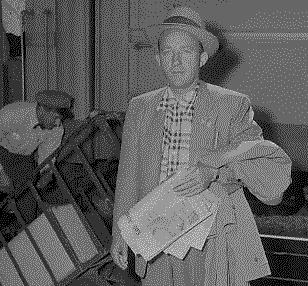
Kraft claimed that Crosby's contract runs until 1950 and that the singer jumped it through failure to appear on KMH since last June. Crosby maintained his contract expired in July 1945.
In 1937, Crosby signed a contract giving Kraft the right to pick up his option each year. Last June, he signed off for what Kraft thought was his usual summer vacation -- but Bing didn't show up in the fall. The sponsor, thereupon, sent its lawyers to spar with Crosby's counselors. As neither side gave an inch, rumors began to circulate that Crosby was signing with another sponsor. It has been common talk in the trade that Crosby feels that he has worn out his welcome doing the same show for eight years and needs a new radio outlet. Kraft reacted to this threat by giving Crosby until Thursday, Jan. 3, to show up on the program. On Jan. 3, KMH was rehearsing in Hollywood, and Crosby was in New York. So at 11:40 that morning, a process server walked into Crosby's suite at the Waldorf-Astoria with a summons.
Kraft had good reason for wanting to keep Crosby. End-of-the-year tallies showed the singer to be the nation's most valuable movie property at the box-office (Newsweek, Jan. 7). Variety front-paged him as "the hottest guy in show biz today" and cited 1945 royalties of more than $400,000 from his Decca record sales as additional proof of his unstemmed popularity.
Crosby, meantime, knowing he could get almost any radio sponsor for the asking, stuck by his guns and said he had come East to work out a friendly settlement with Kraft. He told Newsweek he was "surprised, shocked, and stunned" by the summons.